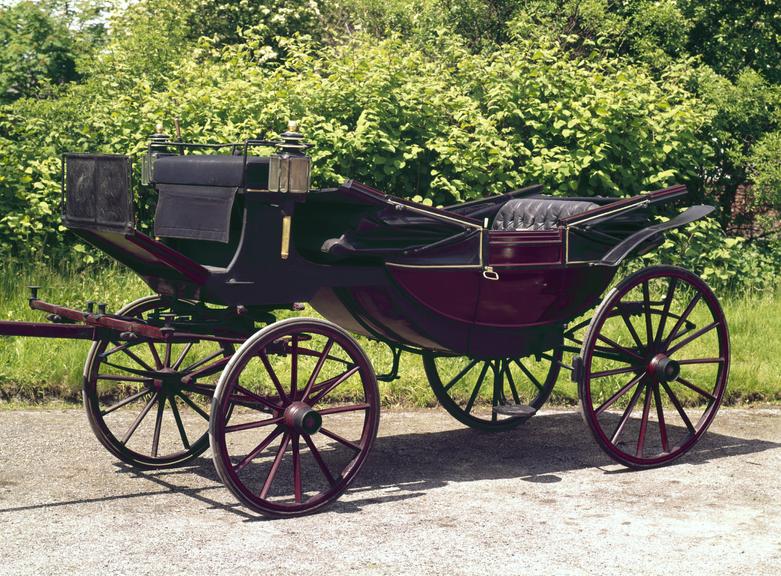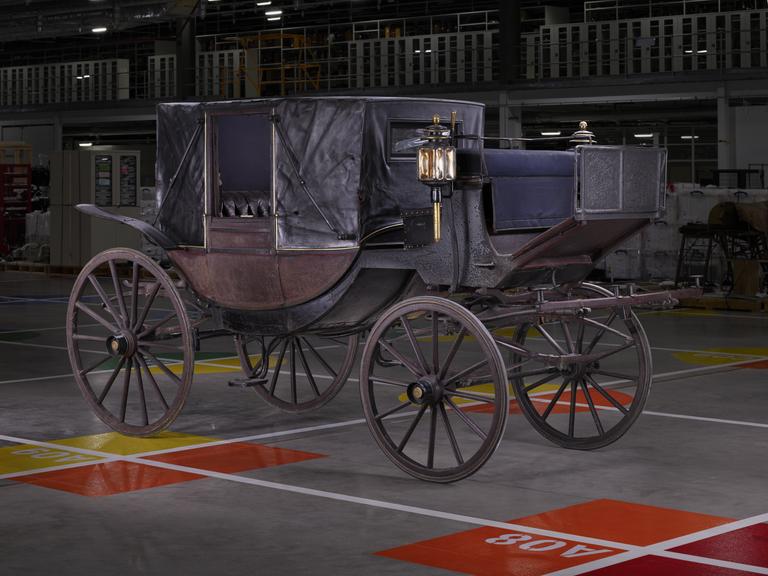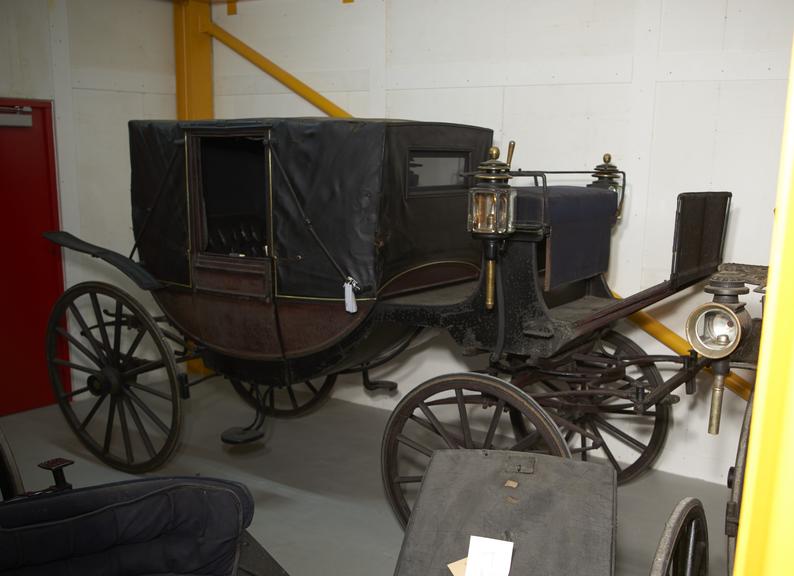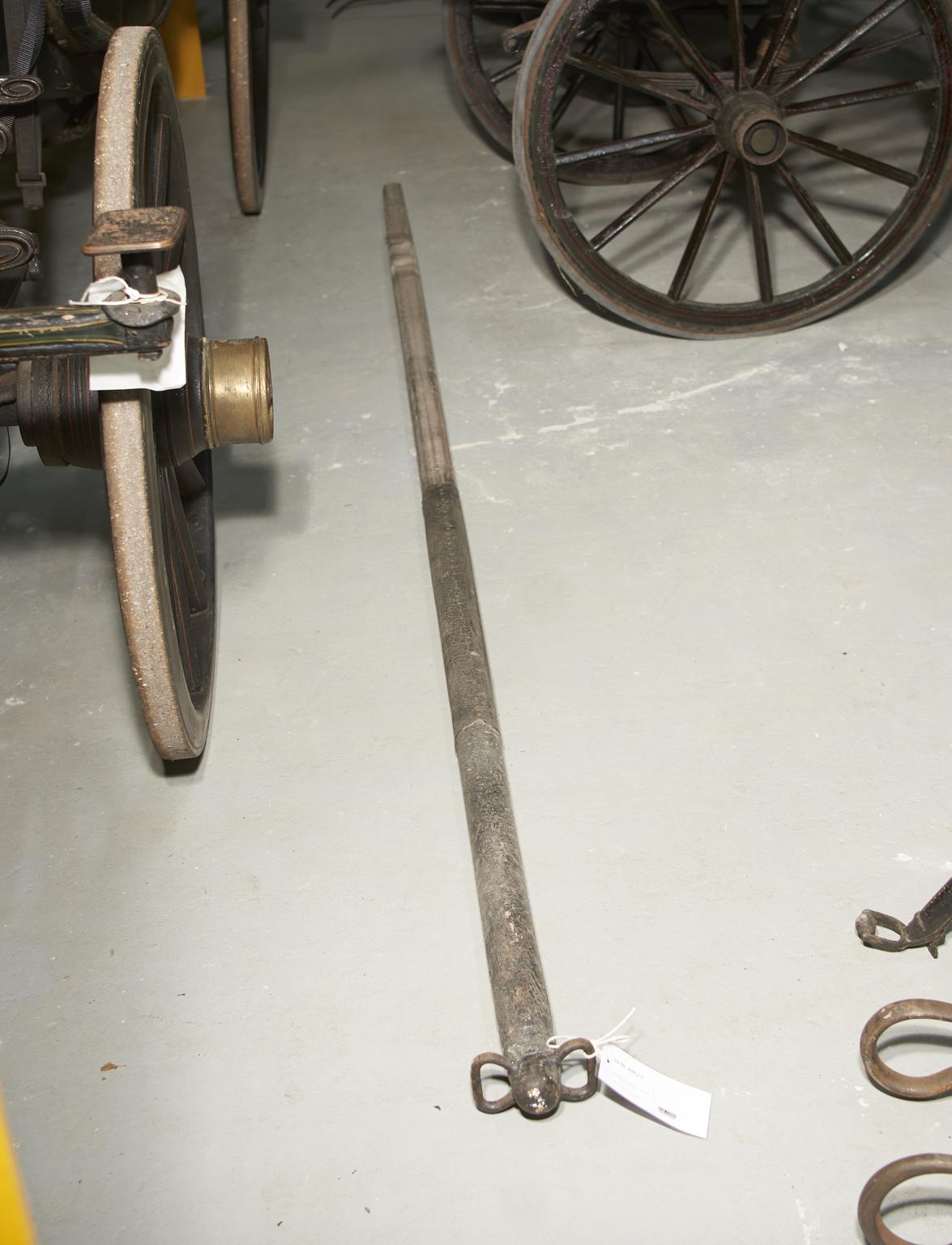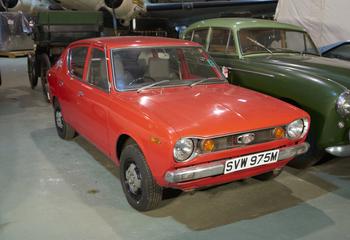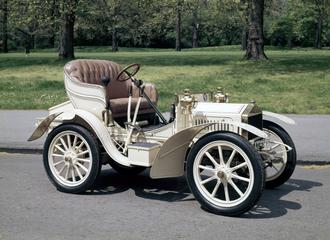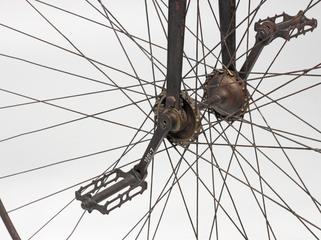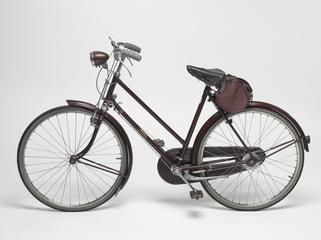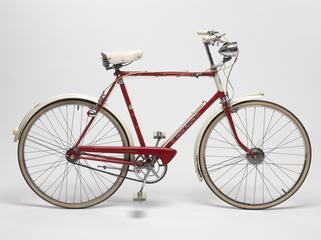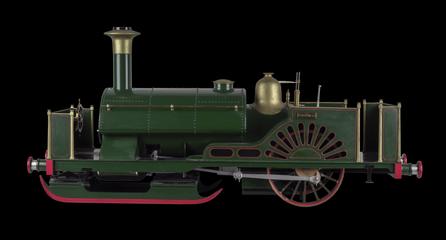Canoe Landau, late 19th century
This smart carriage is a canoe landau, a type of four-wheeled carriage with foldable hoods. It was made by T. Tillings of Peckham in the late 19th century.
The carriage was suitable for all -weather conditions due its two hoods which could be pushed together and joined at the centre, or could be folded back to make an open vehicle. Landaus were developed in Germany, in Landau in the mid-18th century. They were initially larger vehicles but the design was refined and they became popular for use as private carriages. Landaus came in a range of types, including the canoe - so called because of its curved body. Families and private individuals in possession of a landau could use it for both day and night-time use, in all weathers. This removed the need to own multiple carriages- one with a closed hood, and an open carriage for the daytime and warm weather.
